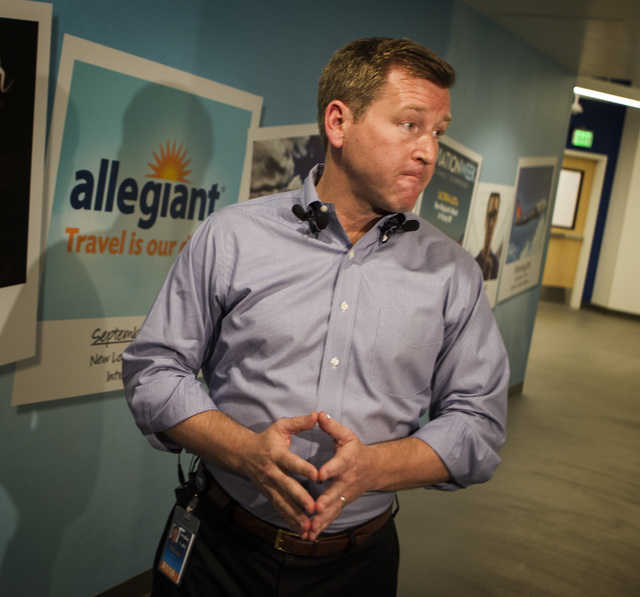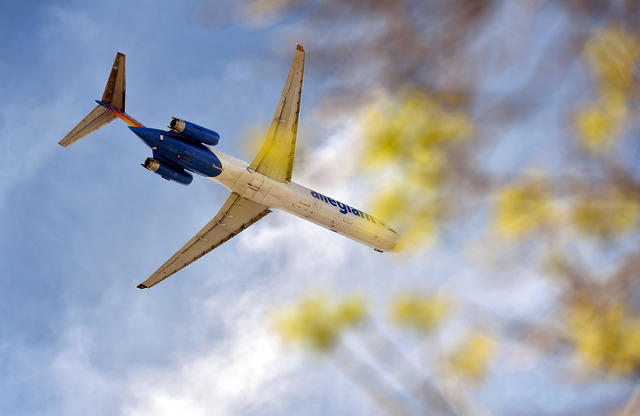Allegiant Air exec explains pilot-scheduling system
An Allegiant Air executive overseeing pilot scheduling spent Wednesday on the witness stand in the company’s bid to win an injunction preventing its pilots from striking.
Trent Porter, who oversees scheduling for the Las Vegas-based airline, fielded questions about Allegiant’s new system from Douglas Hall, who is representing the company, and Ed Gleason, lead attorney for Airline Professionals Association Teamsters Local 1224.
Earlier this month, pilots vowed to strike in a dispute over work rules and scheduling. The pilots and the airline — the sixth-busiest at McCarran International Airport — are far apart in contract negotiations for what would be Allegiant’s first union contract.
But the court action being argued before U.S. District Judge Andrew Gordon is about whether pilots can strike based on allegations that Allegiant changed its work rules in response to pilots voting in the union.
On April 1, the pilots called a strike, but the airline received a temporary restraining order from U.S. District Judge Gloria Navarro, who assigned the case on the injunction to Gordon, who presided over a court case involving the Teamsters and the airline in July.
In Wednesday morning’s testimony, Porter explained how the airline’s pilot scheduling software works.
How the system works is key to whether Allegiant violated a court order requiring it to maintain status quo on work rules that the union alleged were changed from an earlier agreement negotiated by a group of pilots prior to the certification of the Teamsters.
If Allegiant violated status-quo rules, the pilots could walk off the job because those rules are not subject to the Railway Labor Act, which requires a 30-day “cooling-off period” when negotiations break down and opposing sides are released from mediation.
Porter explained that the system using software called Merlot produces a schedule based on pilot requests, giving priority to pilots with the most seniority. The system is designed to consider a pilot’s request for off time and protects against scheduling a pilot from flying too many hours without rest.
The pilots were skeptical about the system and questioned how it prioritized trips. Because the system software was new to the company, Porter said it was explained to the pilots in a “road show” at Allegiant’s leisure destination bases, but he added the sessions were lightly attended by pilots.
“We believe happy crews make for a happy company, and we wanted to keep the pilots happy,” Porter said from the stand.
In cross-examination from Gleason Wednesday afternoon, Porter was questioned about details of the system, including specifics from schedules used as an example of the system’s performance.
The two sides will return to court today. The judge was anticipating rendering a decision today or Friday and at the end of Wednesday’s hearing asked attorneys to streamline their presentations.
Contact reporter Richard N. Velotta at rvelotta@reviewjournal.com or 702-477-3893. Find @RickVelotta on Twitter.



















